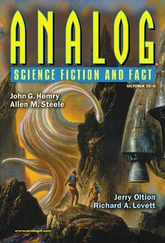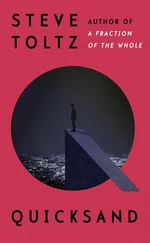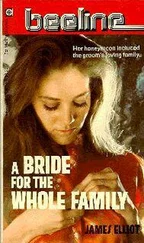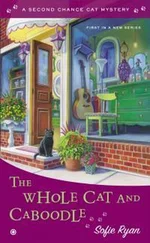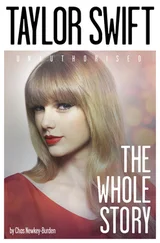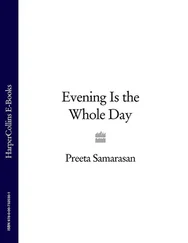The whole day passed in this way. It was very, very irritating. I just couldn’t shake them. They seemed always to guess my every move. Dejected, I caught the bus back home and decided I’d try it again when the Terry Dean story had died down a little, when it wasn’t so fresh. It had to peter out eventually, I reasoned. The public has attention deficit disorder. It’s famous for it. But what I hadn’t figured was that the Terry Dean story wouldn’t stop there because Terry Dean wouldn’t stop there.
The next day there was more news, and more police and more reporters. The two bookies named in the affair had been found shot dead in their apartments. Witnesses had seen a young man of Terry’s description leaving the scene. In the newspapers and on the radio, language used to describe Terry Dean indicated a subtle shift in public opinion- he was no longer a “lone madman.” He was now a “vigilante.”
Meanwhile, the eyes of the nation were fixed sharply on the inquiry into corruption in sport, which was being conducted with uncustomary speed. It had escaped nobody’s attention that any bookie or cricketer named in the report would become a potential target for Terry Dean, Vigilante at Large.
The report of inquiry into corruption in sport was released and made a matter of public record. It named names. Three more cricketers were mentioned: some for throwing games, some for passing on match information. More bookies were named too. Everyone was on guard. They were put on twenty-four-hour police surveillance. The police thought they were ready to catch Terry, because if they had deduced one thing, it was that he had started something he felt he had to finish. But Terry was one step ahead of them.
The thing was, no one really paid close attention to the inquiry into corruption in sport. They read about the cricketers and waited eagerly for Terry to make his move. But the prime minister had promised an exhaustive inquiry, and they delivered an exhaustive report that also contained sections and subsections detailing corruption in horse racing, rugby league, rugby union, Australian rules, soccer, the Commonwealth Games, lawn bowls, snooker, cycling, rowing, boxing, wrestling, yacht racing, hockey, basketball…If it involved an Australian running or sweating or handling balls not his own, it was in there.
The first time Terry showed the breadth of his passion was with the murder of a jockey named Dan Wonderland; he was found beaten and force-fed enough horse tranquilizer to kill a stampede. I gazed searchingly at the photograph of this man whose life my brother had taken, in the hope of seeing something evil, something that rose up out of the picture signaling unequivocally that the fucker deserved to die. It was taken after winning a race, and in it Dan Wonderland was beaming and holding up his arms in triumph. Even if I hadn’t known my brother had killed him, I’d have seen something infinitely sad in the face of this jockey, the look of a man who has just achieved a lifelong dream only to realize that his dream was really nothing special.
The next day there was another killing: middleweight champion Charlie Pulgar, who’d taken a very obvious dive in the ring, falling when, at the sound of the bell, his opponent smacked his gloves together. With Terry’s help, Charlie Pulgar took his last dive- off the roof of his seventeen-story apartment building into a steady flow of traffic.
Just as investigators started anticipating Terry’s next moves, he changed tactics once again. The inquiry into corruption in sport had also uncovered a phenomenon seeping into the world of professional sport: performance-enhancing drugs. With a little detective work, Terry ascertained who was purchasing and administering them: the coaches. Men who had always worked tirelessly behind the scenes shifted from the background to the foreground; their square jaws and haggard faces appeared more and more in the papers, as one by one they turned up dead.
But the most dangerous aspect of Terry’s crusade was that, understandably, the bookies did not go quietly. Their links to the underworld guaranteed them guns and protection, and reports of gun battles in the backs of restaurants and bars filtered through the news. Terry had broken the last of Harry’s laws- not only was he as far from anonymity as a person could be, but he had won the ire of the criminal world. He was not just on the ladder, he was shaking it. Along with the state and federal police, the criminal superstructure wanted him dead.
My parents dealt with the situation in their own way. Rather than face up to the awful truth, they extended their delusions about their son. While my mother doggedly pursued her double theory, my father put a positive spin on the whole dirty mess, turning rationalizing into a high art. If Terry shot a policeman in the leg, my father praised his mercy for not going for the heart; if Terry shot a policeman in the heart, my father praised his aim. To hear him talk, his son’s eluding the police was evidence of his brains, his craftiness, his blanket superiority.
Lionel Potts was calling me five times a day, begging me to come to his house and give him updates. As I read him every newspaper report, he would remove his dark sunglasses. His dead eyes seemed to see for miles, and he’d lean back and vigorously shake his head. “I know a great lawyer- he’d defend Terry. I’m only sorry I didn’t recommend him last time. I was a little pissed off. He did blind me, after all. Still, this lawyer would be perfect for him.” I sat listening to Lionel go on and on, gritting my teeth. I couldn’t stand it. As crazy as it sounds, I was overcome with jealousy. Terry was doing something with his life. He had found his calling; insane and bloodthirsty as it may have been, it was still a calling, and he was pursuing it vigilantly.
Every morning I ran to the corner shop for the newspaper to read about his atrocities. Not all his victims were dead. The snooker player who allegedly sank the white after the black accidentally on purpose only had his right hand broken, and strangely, he, along with some of Terry’s other victims, came out in support of Terry’s crusade. Through a public emotional hazing, they confessed their sins and said that Terry Dean was cleaning up an institution that had once been pure but had become soiled by the lure of big money. They weren’t the only ones.
Sportsmen, commentators, intellectuals, talk-show hosts, writers, academics, politicians, and radio shock jocks- everyone was talking about sporting ethics, ideals, heroes, and the Australian spirit. Terry had jump-started a dialogue in the nation, and all the sportsmen and -women were on their best behavior.
***
One day during this chaos, Caroline came back into town, dragging a suitcase. I was sitting on the town hall steps counting the lines on my index finger when I spotted her coming down the street. She saw me, dragged that suitcase in a run, and threw her arms around me, plastering my cheeks with platonic kisses. I knew then and there that we would never discuss that night in her bedroom. I took a good look at her. She had really blossomed into a woman, but there were strange changes too: her hair was a lighter color, almost blond, and though her face was fuller and her lower lip more mature, there seemed to be something that had left her, a light or a glow. I thought maybe on her travels she had seen something that had scared it away.
“You heard about Terry?” I asked.
“It’s incredible.”
“Is that why you came home?”
“No, I only heard when I saw a newspaper at the airport, and the bus driver filled me in on the rest. You don’t hear about Australia in Europe, Marty. It’s strange. No one knows anything about us.”
That’s when I first discovered that living in Australia is like having a faraway bedroom in a very big house. All the better for us, I thought.
Читать дальше

